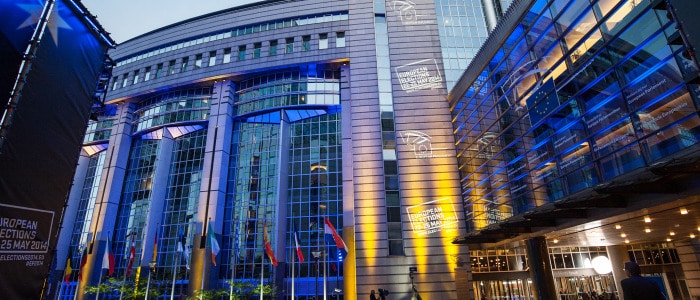Published
Barroso’s Faustian Bargain
By: Fredrik Erixon
Subjects: European Union

Expectations run high as José Manuel Barroso took the floor in the European Parliament last week to give his annual State-of-the-Union address, aptly titled “European renewal”. Sandwiched between the green-lighting in Finland and Germany of the revamped bailout fund (EFSF), the world was keenly interested to get a sense of how Barroso want to steer Europe’s economic agenda.
And he got off well. Barroso, rightly, mounted a full attack on the incapability of European leaders to address the problems in the eurozone. So it was not impolite, then, to wonder what Barroso himself wanted to bring to the table of economic leadership. Surprisingly, he had little to add except for even greater economic irrationality. His main new initiative was a Commission proposal to levy an EU-wide financial transactions tax purported to raise revenues and correct the injustice in recent years’ subsidization of the financial sector.
I was not the only one that had to pinch myself in the arm to make sure I was awake. What does it say about the Commission’s own economic leadership that it now wants to charge ahead with a tax that most certainly will depress the European economy?
According to the Commission’s own impact assessment, this tax runs the risk of cutting Gross Domestic Product (GDP) in the EU by up to 1.76 percent. Correcting for a few differences between the assumptions in the impact assessment and the actual proposal, it is more likely that the effect would be around one percent of GDP, with long-run effects amounting “only” to 0.5 percent, provided mitigation measures are imposed to stop too much of financial trading to migrate beyond the reaches of EU tax collectors.
This is big deal, especially in light of the aneamic growth that Europe can expect for the rest of this decade. In Europe’s €12.5 trillion economy the welfare cost of the tax adds up to €125 billion, which is more than twice the size of total GDP for all three Baltic countries. The employment effect would also be distinct; a likely scenario suggests the number of jobs to be lost because of the tax to be in excess of 200 000.
Nor would the tax correct the injustice in the bank bailouts – or bring vengeance upon those corporate welfare queens (a k a fat cats) who were saved by governments during the crisis but still pocket zillions from their firms. The tax and its consequences have nothing to do with justice or fairness. If anything, it is a “Faustian bargain”.
If taxed, financial activity will relocate to other parts in the world. Even at low rates, the effective level of taxation becomes high. Relocation is exactly what happened when Sweden toyed with an equivalent tax in the 1980s. Trading in options and futures virtually disappeared. Trading in bonds was almost wiped out too. Consequently, the tax brought in far less revenues than expected – and those revenues collected were offset by a decline in revenues from the capital gains tax.
The Commission itself assumes that a sizeable portion of all trading would migrate from Europe. So those who really would be on the receiving end of this tax are those businesses and households that would see borrowing and investment costs go up. Even if it is not they who would directly be charged with the tax, costs would be transferred to others than the financial institutions whose trading will be levied. This can hardly be Barroso’s concept of European renewal.
Economic leadership such as this simply will not do. The European Union has a key role to play in fighting the current eurozone crisis and in pressing ahead with reforms that could increase growth and help countries to stabilize fiscal balances. Barroso himself outlined such a “transformational agenda for Europe” two years ago when he sought re-election as head of the Commission. His agenda then was premised on what he considered to be the two biggest challenges for Europe: restarting economic growth and fighting unemployment.
He also added: “I have always preferred, and I will always prefer, solid achievements over empty rhetoric.”
Will the real Barroso please stand up!
This is certainly unfortunate, but there is a guideline while in the tax code that permits the government to collect taxes from the sale of illegal drugs. The IRS has unique policies where drug dealers may anonymously take care of taxes on the sale of illegal drugs. Here is the true kicker, the Internal Revenue Service just isn’t able to turn the seller in for narcotic dealing, they will be basically able to accumulate the taxes and document the identity, to ensure if for example the supplier is captured for dealing drugs, the criminal prosecution cannot really charge them with tax evasion. Learn more relating to this here: http://ww.tax-defense-network-tax-laws.com/tax-defense-network-illegal-drug-tax/